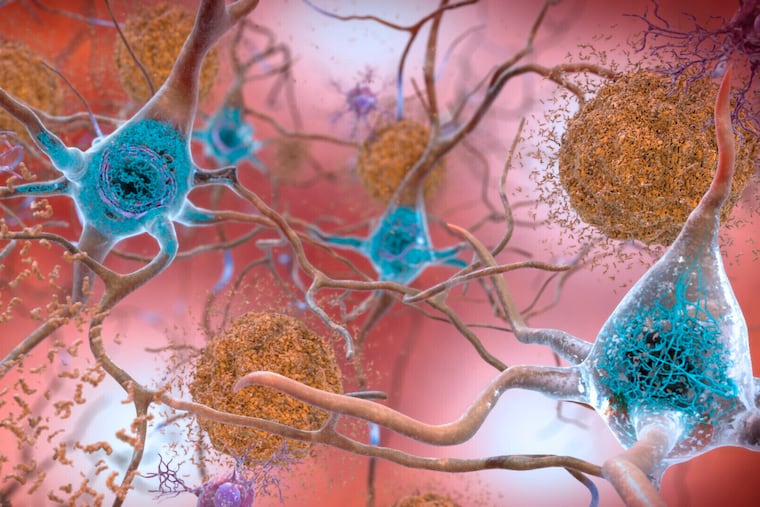Can Alzheimer’s be detected with a blood test? This Pitt scientist says it may help identify patients for a new drug
Such blood tests may be used to screen patients for a drug called lecanemab.

The FDA may approve a new drug for Alzheimer’s as soon as this week. But policy experts warn that the health-care system is ill-equipped to identify which patients might be eligible for the drug, called lecanemab, as the screening process likely would involve expensive brain scans.
A better option may be a simple blood test, according to a new study led by a University of Pittsburgh scientist.
Patients with early symptoms of Alzheimer’s were found to have elevated levels of an abnormal protein called tau in their blood, the researchers reported in the journal Brain.
Several other blood tests have been developed for Alzheimer’s, but the new test appears more accurate — allowing physicians to better distinguish between people with Alzheimer’s and other forms of dementia, Pitt neuroscientist Thomas Karikari said. Follow-up studies are underway.
The findings come as the Food and Drug Administration weighs the evidence for lecanemab, an antibody-based drug that appears to slow the progress of Alzheimer’s by a modest amount. The agency is expected to make a decision as early as this week on the drug.
» READ MORE: Can this drug stop Alzheimer's before it starts? A study is underway at more than 100 sites, including Penn
That means the first patients could start treatment later this year. But if physicians use brain scans to identify people for the drug, it will take years to accommodate the millions who may be eligible. The drug itself also is expected to put a strain on insurers, likely costing tens of thousands of dollars per patient.
To determine which patients are eligible for the treatment, fast, inexpensive blood tests are potentially a better option than brain scans, as they can show signs of disease long before they are apparent on brain images, Karikari said.
“They tend to be abnormal earlier than the images,” he said. “They’re also much more accessible.”
Karikari developed the blood test with scientists at the University of Gothenburg, in Sweden, measuring a form of the tau protein that originates in the brain. Other Alzheimer’s blood tests measure an abnormal protein called beta amyloid.
While more study is needed, such blood tests will someday be a valuable tool in determining who will benefit from a drug, said David C. Weisman, a neurologist at Abington Neurological Associates.
“These blood-based biomarkers are so powerful,” he said. “They show us an insight to the way the therapies are working. It’s going to be ready for prime time, eventually.”
» READ MORE: How to tell if you're eligible for the Alzheimer's drug trial
The Abington clinic is one of more than 100 sites where lecanemab is being tested in people who have yet to develop symptoms of Alzheimer’s. Other area locations are the University of Pennsylvania and Keystone Clinical Studies, in Plymouth Meeting.
This week’s FDA decision on the drug, on the other hand, would clear the drug for use only in patients whose brain function has begun to decline.